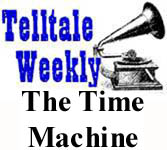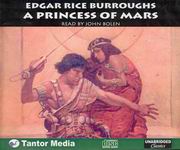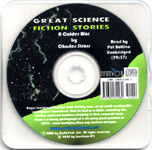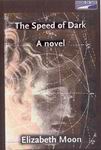
 The Time Machine
The Time Machine
By H.G. Wells; Read by James Spencer
MP3, OGG or AAC files download – 3 hours, 2 minutes [UNABRIDGED]
Publisher: TelltaleWeekly.org
Published: 2004
Themes: / Science Fiction / Time Travel / Math Fiction /
I felt assured that the Time Machine was only to be recovered by boldly penetrating these underground mysteries. Yet I could not face the mystery. If only I had had a companion it would have been different.
Sounds suspiciously like the plot of every Doctor Who episode doesn’t it? But The Time Machine isn’t just about exciting time-travel adventures, it’s also about the class struggle in Great Britain in the late 19th century, the widening gap between rich and poor, what Humans have control over and what they don’t. Doctor Who has been known to tackle these ideas too, one of it’s serials even has H.G. Wells as a character, but the fact that The Time Machine did it first, and so well, speaks volumes.
Scientifically explained SF stories of time travel take their cue for explanation, when they do it at all, from this novel. Prior to its publication stories of travel in time went unexplained, the Connecticut Yankee, of Mark Twain’s comedic time-travel novel got a knock on his head that sent him back to Middle Ages England – and that was explanation enough in its way. But The Time Machine isn’t played for comedy, Wells’ futures are allegories for his worries about capitalism and communism, for his notation about gender blurring in the industrial age and his realization that not only are all men mortal, but so in fact is Mankind itself!
In just three hours Wells posits two futures: 1. A relative near term future humanity which has bifurcated into two distinct species (Eloi and Morlock) – they stand as the evitable result of aristocrat and proletariat class calcification present in the political theory at the time of it’s writing. 2. A vision of a far future Earth, showing the inevitable and unavoidable physical reality of the universe. Were this not a public domain text, and were not the plot so familiar to us we’d have to think ourselves blessed by this excellent reading. As it is, and as cheap as it is this classic of science fiction can be judged only by it’s audiobook. Thankfully the reading keeps pace with the text.
Sound quality is excellent, but the reader, James Spenser, doesn’t have much to do in the way of voices. He does however a marvelous job engendering anticipation, fear, disgust and sympathy through pacing. Spencer’s lack of an English accent for this Englishman’s tale doesn’t really matter, only one character in the novel is named, she couldn’t sensibly be called English and she doesn’t even have a speaking part. Much of the difficulty in this story comes from the stilted way it is rendered. Told in first person by an unnamed witness to the recounting of the main events, we are regaled second hand with the time traveler’s adventures in time. I can charitably call it “quaint.” Arthur C. Clarke later took up this kind of storytelling with his “Tales Of The White Heart” series of short stories, likely I think in homage to Wells. I’ve heard several audiobook renditions of The Time Machine now, of the non British reader’s Spencer’s is “the definitive edition.” And at just $5.00 it’s a deal.
Posted by Jesse Willis





